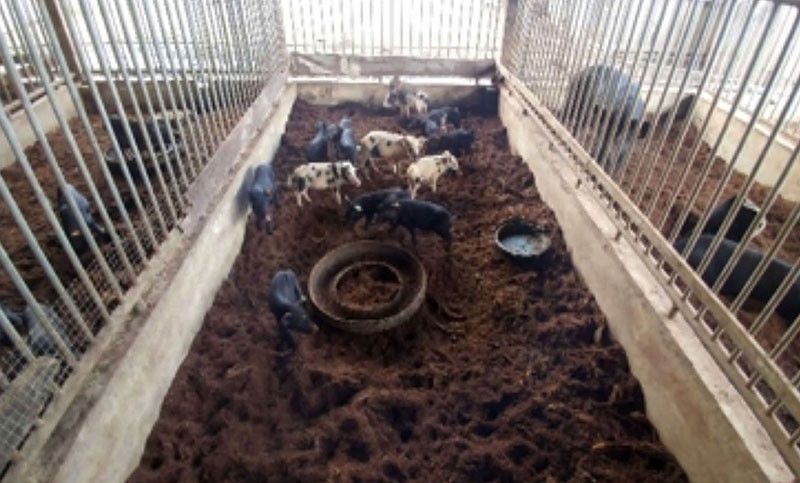IFSU prof working to save Ifugao native pigs

BAGUIO CITY, Philippines — Ifugaos want to save not only their deteriorating rice terraces, but the dwindling number of its native pigs too.
The native pigs used to roam freely along the terraces, but have started to disappear as the terraces and habal (swidden farms) in the province were abandoned or fell out of use.
Like native chickens, native pigs used to occupy an important role in the economic and cultural landscape of a typical Ifugao village. Used in rituals, weddings, birth and death rites, pigs are an essential part of the cultural life of the village.
Although fewer perform the indigenous rituals now, the value of and use for pigs has remained.
This has prompted Dr. Elpidio Basilio, Jr., an expert on Ifugao native pigs and an associate professor at the Ifugao State University agriculture department, to venture into “saving” the native pig.
He has studied its genetic components and established the “Nucleus Herd” for the Ifugao Native Pig at IFSU as an offshoot of his doctoral dissertation.
Dr. Basilio found in his research that there are at least five strains of Ifugao native pigs that are rare and unique species when compared to genetic samples from Kalinga and Taiwan native pigs.
Currently, Dr. Basilio, project leader of the IFSU native pig project, is conducting further tests and experiments to improve the Ifugao native pig breed.
Basilio said saving and modifying the Ifugao native pig breed is important. “Our native pigs have been part of our culture. Family and community rituals and occasions are always performed with the expense of the native pig.”
Dr. Basilio said the Ifugao native pig is adaptive and resilient to conditions in Ifugao villages. "With these positive characteristics, we collected the five strains of our Ifugao native pigs to purify and multiply their number in our IFSU Nucleus Herd."
“Once we complete the process of purifying and increasing the number of Ifugao native pigs in our Nucleus Herd, we will dispose and distribute them to our local farmers and communities as an additional source of livelihood,” the pig expert vowed.
The purified Ifugao native pig is also low cost in maintenance and non-capital intensive, he said. Farmers can use local and available materials for housing, food and other maintenance for the native pigs.
Dr. Basilio hopes that the Ifugao native pig project could help give farmers an alternative source of livelihood.
- Latest
- Trending




























